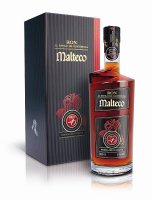Rosé wines from all over the planet (141)
Quality rosé wines from all over the world. In the e-shop you can find wine from 18 countries and more than 250 world and Slovak wine brands. Delivery within 2 days. In recent years, rose wine or Rosé has become very popular because these wines carry a combination of red wines along with the freshness of white wines. Quality rosé wines from all over the world. In the e-shop you can find wine from 18 countries and more than 250 world and Slovak wine brands.… Read more
Roger Brun
Romance Rosé ChampagneChampagne rose - dry - r2014 - 0,75l

Moet & Chandon
Ice Rosé ImperialChampagne rose - demi sec - 0,75l

Champagne Ayala
Brut Rosé Majeur DBChampagne rose - brut - 0,75l

Moet & Chandon
Brut Impérial RoséChampagne rose - brut - 0,75l

Moet & Chandon
Brut Imperial RoséChampagne rose - brut - 0,75l

Champagne De Saint Gall
Le Rosé Premier CruChampagne rose - brut - 0,75l
Le Puy
Rose-Marie BIOwine rose - dry - r2022 - 0,75l
Bollinger
Rosé Brut MagnumChampagne rose - brut - 1,5l

Bollinger
Rosé Brut MagnumChampagne rose - brut - 1,5l

Bollinger
Rosé Brut JeroboamChampagne rose - brut - 3l
Bollinger
Rosé Brut JeroboamChampagne rose - brut - 3l
Rosé wines from all over the planet
Rosé: The triumph of the rose garden
There are things somewhere in the middle that don't lead to extremes and that we often don't even pay enough attention to. So it is with rosé wine, which is neither white nor red and yet has something of each. Fine rosé wines are not a mixture of red and white wine. These are almost white wines made from red grapes, but thanks to the processing, including the dyeing phase, the best properties of both drinks come together in the mentioned rosé wine. However, in recent years rosé wine has become very popular because these wines carry a combination of red wines along with the freshness of white wines.
A typical rose wine from Slovakia?
Rosé causes winegrowers to generate many experiments that interpret this variety in different ways over and over again. The boom that rose wine has recently experienced is also playing into their cards.
For example, in Cannes at the Mondial du Rosé, the only international rosé wine competition in the world, they won three gold and ten silver medals in a huge wine competition. Slovakian gold goes to Terra Wylak for Cabernet Sauvignon rosé 2017, Vinárstvo Berta also for Cabernet Sauvignon rosé 2017, and in third place Chateau Modra for Cabernet Sauvignon rosé Prémium, of the same year.
Slovak rosé wines were evaluated by strict, top tasters from all over the world. Three silver medals went to Víno Matyšák for Cabernet Sauvignon rosé berry selection, Cabernet Sauvignon rosé late harvest and Cabernet Sauvignon rosé.
Silver has Cabernet Sauvignon rosé from the Zámocké winery, Vins Winery and also from Chateau Rúbaň. Frankovka blue rosé from Tokaj Macik Winery and Pinot Noir rosé from Martin Pomfy winery also finished silver. Ten silver medals are awarded to Rariga Winery for their Rosa rosé. Each of the awarded wines belonged to the 2017 vintage.
Recently, Slovak wines have scored points at several international wine competitions. These are mainly awards for white, rose and red wines at Vinalies Internationales Paris, Bacchus Madrid, Concours Mondial de Bruxelles or AWC Vienna.
From which varieties and how exactly is rosé wine made?
Rosé can simply be described as a kind of hybrid between white and red wines. The colors contained in the skins are not fully developed, therefore the result of pressing is the light red to pink tone that is so typical of this wine. However, in no case is it permissible to mix white and red wines in such a way as to create a pink color. For the production of rosé wines, winemakers use only red and blue grapes. However, after pressing, the cider must remain on the mash for a much shorter time. As a result, the grape juice absorbs only a minimum of color. Tannins (bitter substances) in the skin are therefore only in small amounts in rosé wine.
French red grapes Pinot Noir, Cabernet Sauvignon, Merlot and Grenache are typical for rosé wine. This is also because the first idea of pressing red grape varieties immediately after harvest was born in France. However, if you look to Italy, you will find plenty of Sangiovese rosé wines. Shiraz is preferred in Australia and Tempranillo is popular in Spain; each wine region creates a rosé wine with its own signature.






 facebook
facebook
 Contact us
Contact us






